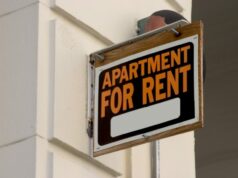Renters all over the world are in major financial trouble and can’t afford to pay rent. Millions of people across the U.S. have lost their jobs.
The 2020 stay-at-home orders and economic shutdowns have forced tens of thousands of small businesses to close their doors permanently. Houston is no exception.
Normally, you’d evict tenants for non-payment of rent. However, the CDC has issued a nationwide moratorium on evictions for non-payment of rent when the tenant can’t cover the obligation because of the pandemic. This means you can’t evict a tenant for not paying rent if they lost their job because the employer had to close the business.
In theory, an eviction would free up your property to rent to another person, but in reality, you might not be able to find another renter for a while. People aren’t generally looking to move right now.
Your unit might sit vacant for several months. By that time, the pandemic could clear up and society might possibly start to return to normal.
It’s not your job to help your tenants avoid eviction, but if you choose to do so, you might well benefit along with your tenant. Evictions involve lawsuits and they’re often expensive, time-consuming, and messy even in the best of times.
Here’s what you can do to help your tenants avoid eviction during the pandemic, and keep things under control until the economy starts to reemerge.
1. Play by the national rules
The CDC’s moratorium rules are cut and dried: You can’t evict a tenant for not paying rent if their non-payment is caused by coronavirus-related circumstances.
However, the situation became a little more complicated in Texas this year. In February, a federal judge ruled that the eviction moratorium is unconstitutional because it interferes with private property rights.
Although this might sound like good news, you probably shouldn’t read this as a free pass to start evictions. You might still end up in legal trouble if you evict a tenant while the CDC’s moratorium remains in place. A tenant could sue you and it would be up to a judge to determine whether you broke the law.
Even if the judge were likely to rule in your favor, you still might not be able to get your eviction lawsuit heard because the court system is backed up. You could waste a lot of time, money, and energy.
It’s safer to hold off on evictions until we all know for certain that they’re worth pursuing. The ruling is relatively new and it may not have the real-world impact you’d expect.
2. Inform renters of Texas’s new rental assistance program
Tell your tenants about the new state-sponsored rental assistance program. They might not be aware of it.
A state-sponsored rental assistance program was launched in 2020, but tenants could get relief only if their landlord signed up for the program. Unfortunately, many landlords refused to participate. Others didn’t know they had to sign up and tenants didn’t know how to apply.
In an effort to help tenants pay rent and avoid eviction, the state of Texas just launched another program, this time with stricter requirements. This program doesn’t require landlords to participate in order for tenants to get help, however.
The program began February 15, 2021 and will provide $1.3 billion in rental assistance to tenants who make no more than 80% of their county’s median income.
It offers the following benefits to tenants:
Assistance to pay rent all the way back to March 13, 2020
Assistance to pay up to 3 months’ rent, current or future
The ability to reapply for more assistance in the future
Assistance will cover up to 15 months of rent
Although this new program will help tenants without requiring landlords to sign up, it’s not easy to qualify under the income requirements. For example, the income cap for a family of four in Houston is $63,000. Officials estimate around 80,000 households may qualify for assistance.
Tell your tenants about this program and send them directly to the Texas Rent Relief Program’s website, where they can find out whether they qualify and how to apply.
3. Don’t evict tenants for petty lease violations
One might argue that every lease violation is technically a big deal because it represents a broken agreement, in all honesty many of them are not that major from the perspective of the bigger picture. For example, if your tenant isn’t allowed to have pets and you’ve just discovered they have a dog, you might consider modifying their lease.
People are going through some rough times right now and your renter might find comfort in having a dog or cat for companionship. Pets have been proven to reduce stress and improve a person’s mood.
If you discover your tenant has violated the lease by getting a dog or a cat, why not go easy on them? Consider adjusting the lease to accommodate for a well-behaved animal. If the person can’t afford to pay a pet deposit, you might consider waiving that as well.
If you choose to allow the pet, make sure you create an addendum to the lease and provide a copy to the tenant so he or she knows for sure you’re not going to seek eviction over their new pet.
4. Offer some kind of help
There are valid reasons not to help your tenants during the COVID-19 pandemic. But many other reasons could make helping your tenants a win-win situation.
For example, offering discounted rent could get your tenant to start making payments. Some tenants have avoided paying partial rent because they didn’t think their landlord would accept incomplete payments.
Communicate with your non-paying tenants to find out whether they can pay a reasonable portion of their rent. You may never manage to collect all the back rent anyway, so you might as well offer a discount to generate some income.
5. Work with a property management company
One of the best ways to avoid non-pandemic-related evictions is to screen your tenants well and raise your qualification standards. The easiest way to do this is to hire a property management company that will do it for you.
Originally Published By Green Residential Management











